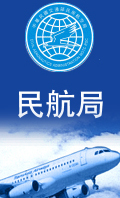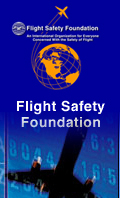|
жӯЎиҝҺе…үиҮЁ йЈӣе®үе®Је°ҺзҹӯзүҮ
|
дәәж°Ј375
A Delta Airlines Airbus A350-900, registration N508DN performing flight DL-159 from Detroit,MI (USA) to Seoul (South Korea) with 189 people on board, was enroute at FL380 over the Beaufort Sea, when the crew received abnormal indications for one of the engines (Trent XWB) and drifted the aircraft down to FL220. The aircraft diverted to Fairbanks,AK (USA) where the aircraft landed safely on runway 20R about two hours later, vacated the runway and stopped for an inspection by emergency services.
Passengers reported the crew told them they were diverting to Fairbanks due to engine issues. Local emergency services were dispatched to Fairbanks Airport with the information the right hand engine of the aircraft had been shut down. A replacement Airbus A350-900 registration N503DN was dispatched from Detroit to Fairbanks, departed for the continuation flight DL-159A about one hour ago and is estimated to reach Seoul with a delay of 21 hours. The occurrence aircraft remained on the ground in Fairbanks for about 27 hours, then positioned to Minneapolis,MN (USA) and returned to service about 9 hours after landing in Minneapolis. On Jan 28th 2020 the Canadian TSB reported the right hand engine surged which led to a roll back and subsequent shut down. On Feb 6th 2020 the European Aviation Safety Agency (EASA) released Emergency Airworthiness Directive 2020-0020-E requiring a "a liquid prohibited zone in the cockpit, and the procedures to be followed in the case of inadvertent liquid spillage on the centre pedestal." The EASA argues: Two in-service occurrences were reported involving inadvertent liquid spillage on the ENG START panel or ECAM Control Panel (ECP) on the centre pedestal in the flight deck on A350 aeroplanes. In both cases, the aeroplane experienced an un-commanded engine in-flight shut-down (IFSD) of an engine some time after the liquid spillage. Subsequent engine relight attempts were not successful. In both events, the flight crew performed a diversion and landed the aeroplane safely. Results of the preliminary technical investigations indicate abnormal operation of the components of the ENG START panel or ECP due to liquid spillage in the system. This condition, if not corrected, could lead to a dual engine IFSD, possibly resulting in a forced landing with consequent damage to the aeroplane and injury to occupants. Dated Jul 28th 2020 EASA superseeded the previous EAD with Airworthiness Directive EASA-2020-90R1 reporting following temporary solutions as laid out in EAD-2020-20E "Airbus developed mod 116038, introducing a water resistant ENG START panel and ECP ICP." EASA writes: "Consequently, this AD is revised to exclude post-mod 116038 aeroplanes from the Applicability." The second case referred to by EASA happened in November 2019, see Incident: Asiana A359 near Manila on Nov 9th 2019, engine shut down in flight. https://flightaware.com/live/
дәәж°Ј375
|
жҗңе°Ӣ
йЈӣе®үе°ҸеҚҡеЈ« йҳІжІ»йіҘж“Ҡе°ҚиҲӘз©әе®үе…Ёиө·и‘—йқһеёёйҮҚиҰҒзҡ„дҪңз”ЁпјҢйҳІжІ»зҡ„дё»иҰҒжҖқи·ҜжҳҜжёӣе°‘йіҘйЎһжҙ»еӢ•иҲҮйЈӣиЎҢеҷЁиө·йҷҚзҡ„йҮҚз–ҠгҖӮ з¶ӯеҹәзҷҫ科 |




 09-22 Incident: S7 A320 enroute o...
09-22 Incident: S7 A320 enroute o...







